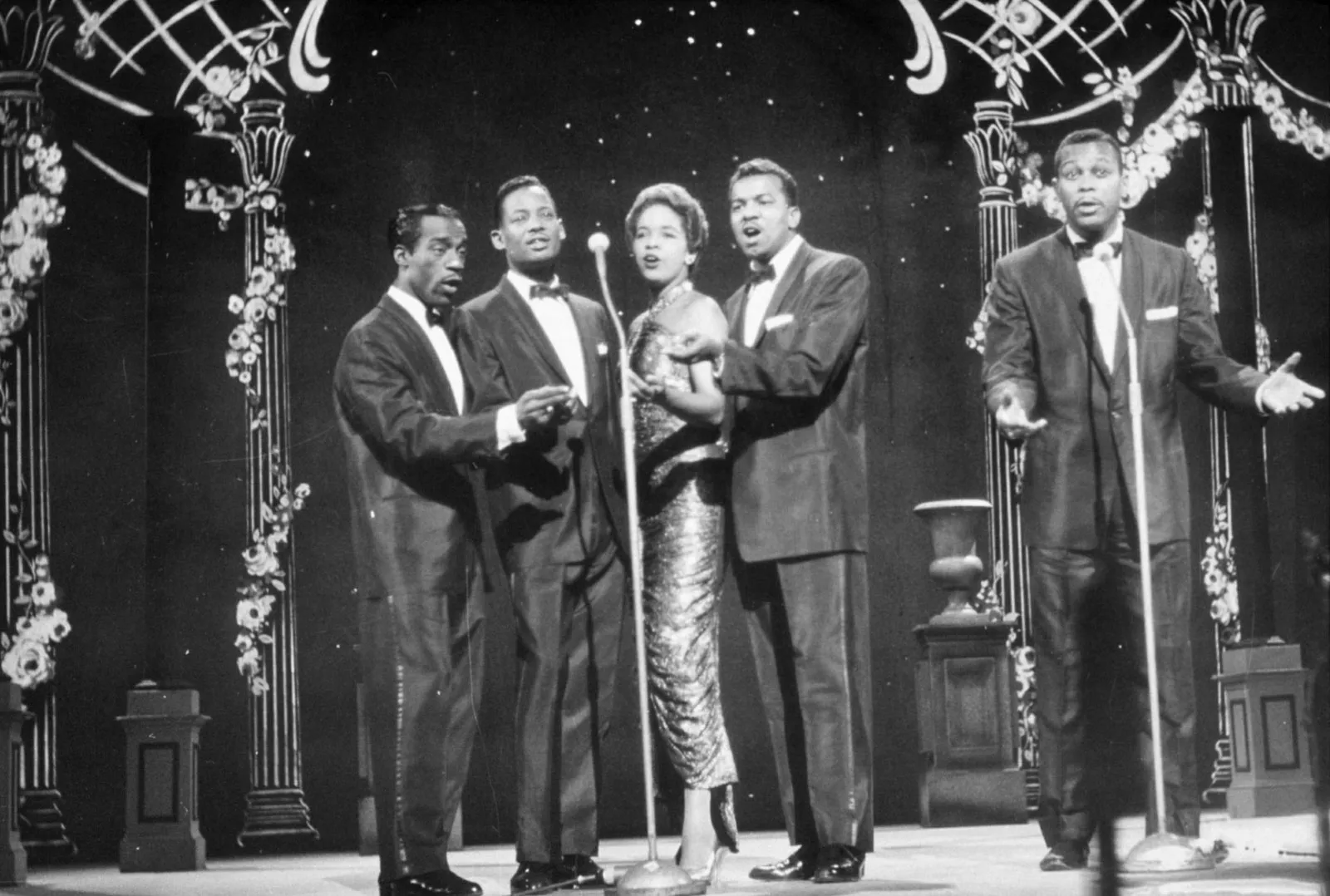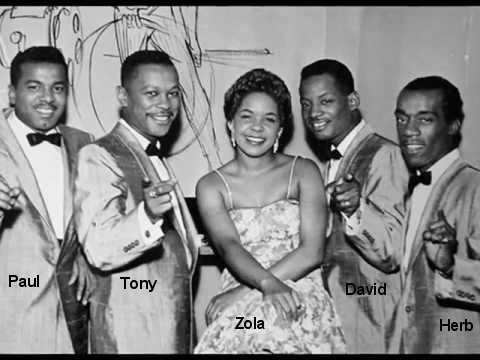🎭 The Platters – “The Great Pretender” (1955): A Timeless Mask of Heartbreak and Doo-Wop Elegance ✨

Released in 1955, The Platters’ “The Great Pretender” isn’t merely a song; it’s an enduring cultural touchstone, a poignant doo-wop ballad that masterfully captures the universal human experience of masking profound heartbreak. With its lush vocal harmonies and exquisitely smooth orchestration, the song perfectly showcases the group’s signature style and the remarkable vocal range of lead singer Tony Williams, solidifying their place as one of the most iconic vocal groups of the era.

The Platters’ Signature Sound: Doo-Wop Refinement
From its opening notes, “The Great Pretender” envelops the listener in the unmistakable sound that made The Platters global stars. The arrangement is a sophisticated blend of classic doo-wop vocal artistry and elegant orchestral backing. Tony Williams’ lead vocal is nothing short of extraordinary; his smooth, powerful baritone navigates the melody with an effortless grace, conveying deep emotion without ever becoming overwrought. He is perfectly complemented by the group’s signature harmonies, which are rich, precise, and add layers of melancholy and depth. This meticulous vocal layering, combined with the subtle swells of strings and the gentle rhythm section, creates a haunting, almost cinematic atmosphere that draws the listener into the song’s emotional narrative. It’s a testament to producer Buck Ram’s vision and the group’s innate musicality that they were able to achieve such a refined and impactful sound.

Lyrical Masterpiece: The Universal Story of Hidden Pain
Lyrically, “The Great Pretender” is a masterclass in emotional storytelling. It articulates the deeply relatable human experience of someone putting on a brave face, masking profound heartbreak and loss behind a façade of confidence and indifference. The narrator is caught in a poignant emotional tug-of-war: outwardly, they pretend to be unaffected, attempting to deceive others and perhaps even themselves, yet silently, they struggle with the agony of unrequited love or a devastating breakup. Lines like “Oh yes, I’m the great pretender / Just laughing and gay like a clown / I seem to be what I’m not, you see / I’m wearing my heart like a crown” vividly paint a picture of this internal conflict. This powerful contrast between outward appearance and inner turmoil is beautifully conveyed through The Platters’ harmonies, capturing both the profound sadness and the inherent complexity of hiding true feelings from the world.

Commercial Success and Enduring Legacy
“The Great Pretender” was an immediate and resounding commercial success. Its compelling blend of sophisticated doo-wop vocals, orchestral elegance, and its universally relatable theme propelled the track to number one on the Billboard pop charts. Its success not only solidified The Platters’ status as a chart-topping act but also underscored the broad appeal of rhythm and blues-influenced vocal groups in the mainstream.
Decades later, “The Great Pretender” remains a hallmark of 1950s pop music and has left an indelible mark on popular culture. It continues to resonate deeply with listeners today, often covered by artists across various genres, a testament to its timeless melody and poignant message. The song’s enduring beauty and its evocative portrayal of hidden vulnerability ensure its place as an iconic piece of music history, continually reminding us that often, the biggest smiles hide the deepest pain.











